Nutrition on a vegetarian diet
Many people are turning to a vegetarian diet to improve their health. Learn about the health benefits and risks of a vegetarian diet and how to balance these factors to achieve good health.
GENERAL HEALTHY EATING AND LIFESTYLE TOPICS
4/25/20245 min read


General principles of a healthy vegetarian diet
First things first, there is just as much chance of a vegetarian diet being inherently unhealthy as any other type of diet, depending on the quality and type of food that is being consumed. All health-promoting diets are grounded in balanced, wholefoods-based principles, vegetarian or otherwise. That is, to consume predominantly unprocessed or minimally processed foods and avoid highly processed, refined food products that are high in sugar, salt and hydrogenated fats.
The details beyond this are determined by individual needs and preferences, with a key rule to enjoy what you are cooking and eating! Well-balanced, healthy vegetarian diets include a variety of wholegrains, vegetables, legumes, nuts, fruits and healthy fats.
Benefits and risks of a vegetarian diet
Generally speaking, a vegetarian diet is one that excludes all meat and seafood, instead prioritising plant-based foods and with the inclusion of dairy and eggs. There are many different variations of this type of eating pattern and degrees of strictness in their adherence. For the purpose of this article, we will take the basic description at face value.
A vegetarian diet is associated with several health benefits, including better cardiovascular health markers and reduced risk of diabetes and some cancers. However, the restriction of meat and other animal-derived products can result in nutrient insufficiencies and deficiencies if careful consideration is not given to the overall dietary pattern.
As for all eating patterns, a vegetarian diet needs to be properly balanced to achieve optimal health and vitality.
There are health risks when following a diet that restricts any kind of food group.
Mitigating these risks requires a largely personalised approach.
I'd love to work with you on this. Reach out today!
7 nutrients that your vegetarian diet may lack
There are a number of essential nutrients that a poorly planned vegetarian diet will typically lack, so it is important to carefully consider the profile of your meals to endeavour to consume them in adequate amounts.
Protein
IMPORTANT FOR:
Protein is the macronutrient that is critical for growth and maintenance in the body, as well as structure and movement, chemical reactions, cellular transport and storage, gene expression and hormonal activity.
VEGETARIAN DIETARY SOURCES:
If consumed, milk products and eggs
Legumes
Nuts
Seeds
Products made from legumes, nuts and seeds (e.g. 100% natural nut butter, tempeh, tofu, fortified soy products)
Omega-3 fatty acids
IMPORTANT FOR:
These types of fats offer our bodies potent anti-inflammatory properties and are also vital for nervous system, cardiovascular and immune health and cell membrane function.
VEGETARIAN DIETARY SOURCES:
Flaxseed
Walnuts
Soybeans
Iron
IMPORTANT FOR:
Iron is required for functional oxygen transport throughout the body, muscle contraction and energy utilisation. One thing to note is that the iron in plant foods (‘non-haem iron’) is not absorbed by the body as well as the ‘haem’ iron in animal products. Because of this reduced bioavailability, the body requires the consumption of substantially more non-haem iron than haem iron to achieve and maintain adequate iron levels.
VEGETARIAN DIETARY SOURCES:
Green leafy vegetables
Jerusalem artichokes
Dried fruits (esp. apricots)
Almonds
Walnuts
Tahini (sesame seeds)
Legumes
Zinc
IMPORTANT FOR:
The body requires sufficient zinc to achieve good immune health and wound healing. It is also involved in the structure of many enzymes, vitamin A transportation and taste perception. As is the case for iron, it is important for vegetarians to note that the zinc from plant foods is not well absorbed and soy further interferes with this absorption.
VEGETARIAN DIETARY SOURCES:
Wholegrains
Tofu
Tempeh
Legumes
Nuts (esp. almonds, walnuts)
Seeds (esp. pumpkin seeds)
Calcium
IMPORTANT FOR:
We are all aware of calcium's critical role in maintaining healthy bones and teeth. It is also vital for healthy muscle and nerve functioning, and blood pressure and clotting activity.
VEGETARIAN DIETARY SOURCES:
Dark green leafy vegetables (esp. broccoli, spinach)
Figs
Legumes
Sprouts
Almonds
Tahini (sesame seeds)
Vitamin B12
IMPORTANT FOR:
Vitamin B12 plays important roles in cell formation (including red blood cells), nervous system function, folate (B9) activation, and fatty acid and amino acid breakdown. Because this nutrient is virtually exclusively (naturally) found in a sufficiently bioavailable state in animal-derived foods, a vegetarian diet is very often lacking sufficient amounts, and almost definitely so if no animal products are consumed at all.
VEGETARIAN DIETARY SOURCES:
If consumed, eggs and dairy (although bioavailability can be an issue here)
Fortified sources (e.g. soy beverages, nutritional yeast)
Seaweed
Vitamin D
IMPORTANT FOR:
I always like to remind people that vitamin D is not actually a vitamin - it is a steroid hormone that the body naturally produces. Regardless, it interacts with nearly all, if not all, cells in the body, and is vital for immune and bone health, nervous system function and gene expression. Rather than get too hung up on the minimal dietary sources of vitamin D, an important strategy is to ensure adequate sunlight exposure for endogenous production (and other health benefits!)
VEGETARIAN DIETARY SOURCES:
If consumed, eggs and butter
Fortified foods
Thoughtful and considered choices are the linchpin of any healthful eating pattern, and especially so when adhering to specific dietary restrictions and exclusions. The key to following a well-balanced and nutritious vegetarian diet is in the details and planning, and intuitively listening to what your body is telling you when you may be getting off track in providing its fundamental needs.
As always, have fun and be curious, creative and adventurous with your food! Mix things up if they're not working and stick to the foundations of nutritious eating practices and you will be on your way to good health.
Key takeaways
No matter what your individualised eating patterns are, a primarily wholefoods-based diet that is low in processed and refined foods remains the foundation of healthy eating.
There are several nutrients that a strict vegetarian diet is at risk of lacking, so careful attention needs to be given to structuring your diet in a way that reduces the likelihood of nutrient deficiencies that will negatively affect your health.
As with all dietary patterns, the most effective way to eat to achieve good health is personal and individual, and a qualified Nutritionist can guide you to find your unique perfect balance.
Sources
Key, T.J., Papier, K. and Tong, T.Y.N. (2021). Plant-based diets and long-term health: findings from the EPIC-Oxford study. Proceedings of the Nutrition Society, 81(2), pp.1–9. doi:https://doi.org/10.1017/s0029665121003748.
Medawar, E., Huhn, S., Villringer, A. and Veronica Witte, A. (2019). The effects of plant-based diets on the body and the brain: a systematic review. Translational Psychiatry, [online] 9(1). doi:https://doi.org/10.1038/s41398-019-0552-0.
Neufingerl, N. and Eilander, A. (2021). Nutrient Intake and Status in Adults Consuming Plant-Based Diets Compared to Meat-Eaters: A Systematic Review. Nutrients, [online] 14(1), p.29. doi:https://doi.org/10.3390/nu14010029.
Paul, C. and Brady, D.M. (2017). Comparative Bioavailability and Utilization of Particular Forms of B12 Supplements With Potential to Mitigate B12-related Genetic Polymorphisms. Integrative Medicine: A Clinician’s Journal, [online] 16(1), pp.42–49. PMC5312744.
Wang, T., Masedunskas, A., Willett, W.C. and Fontana, L. (2023). Vegetarian and vegan diets: benefits and drawbacks. European Heart Journal, [online] 44(36). doi:https://doi.org/10.1093/eurheartj/ehad436.
Watanabe, F. (2007). Vitamin B12 sources and bioavailability. Experimental biology and medicine (Maywood, N.J.), [online] 232(10), pp.1266–74. doi:https://doi.org/10.3181/0703-MR-67.
© Sharon Jenner 2024
Interested in more content like this?
If you found this content helpful, subscribe to my newsletter today!
Looking for more personalised support?
If you are seeking more personalised professional support to help you establish your goals and develop a wellness plan that is tailored to your unique needs, reach out to me today!
Location & Contact
Essendon, VIC & Online
Email: hello@intrinsicnutrition.com.au
Phone: 0412 905 582
Subscribe for exclusive content
No spam, I promise!
Just quality content for intrinsic learning and motivation once in a while.


